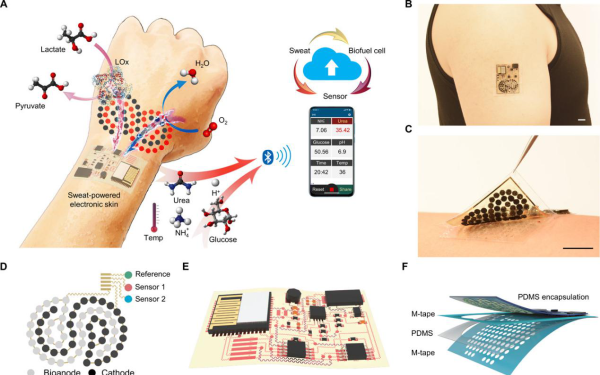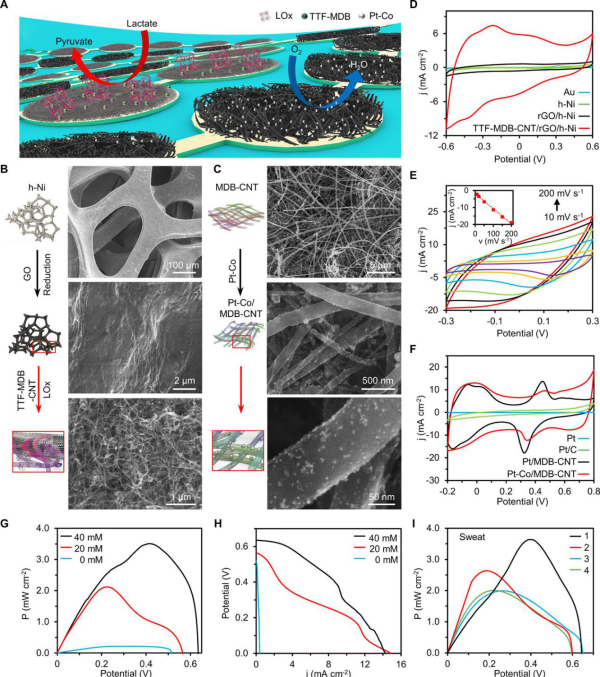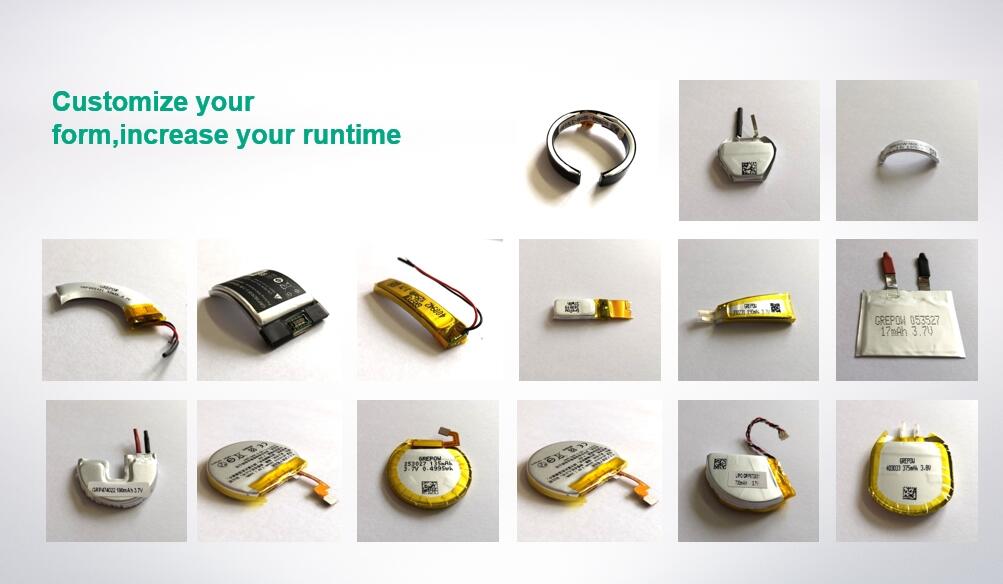Sweat-driven e-skin pushes the development of wearable devices. Wearable devices have been in the market for a while now, but the technology has not had any major breakthroughs. In recent years, there have only been some changes in the commercial application of wearable products, such as smartwatches and bracelets. Furthermore, the functions and applications of these basic commercial devices are limited, and there is still a lot more room for technological advancement.
E-skin power comes from the wearer’s sweat
There is huge potential in wearable devices both in terms of their application and product form. Currently, wearable devices only monitor and compile data on human movement and primary vitals. They rely on rechargeable batteries to operate.
More recently, a new technology was published in the journal Science-Robotics, and researchers from the California Institute of Technology developed an electronic skin that can be fitted with sensors and powered by the sweat of the wearer.
This bio-cell sensor and wireless communication system is contained within a soft elastic rubber patch that fits directly onto the wearer’s skin, so we can think of it as an electronic skin-like wearable device.

A significant impact on the smart-wearables industry
The emergence of this technology has significant implications on its industry.
First, it reflects how wearable devices are moving to be even more convenient and lightweight; secondly, at the application level, it is creating less of a barrier between people and objects; and, finally, at the operational level, the power is obtained by human sweat, which undoubtedly opens up future possibilities of wearable devices.
Furthermore, the new technology’s method of using electricity is a direction towards biofuels. It utilizes the concentrated lactic acid contained in our sweat – a byproduct of our metabolism that is absorbed by the fuel cells of the electronic skin and converted into electricity. These fuel cells are made of carbon nanotubes containing a platinum/cobalt catalyst and an enzyme that breaks down the lactate and is held by a composite mesh. The body’s exhaust mixes with oxygen in the surrounding air to produce water and pyruvate.

From current experimental data, these biofuel cells could generate enough consistent energy to power sensors that monitor such things like heart rate, body temperature and blood sugar levels.
Wearable devices to the future
It can be foreseen that, with continued improvement of technology, smart, wearable devices will continue to militarize.
The emergence of e-skins also heralds a future where wearable devices, especially wearable medical devices, will move to being more closely integrated with our bodies and provide accurate data and real-time monitoring management.
Current wearable battery solutions
GREPOW is currently available for most wearable batteries. We have over 5000 special batteries for you to choose from. The thickness ranges from 0.4 mm to 8 mm. It means that the thinnest can be thinner than paper. All kinds of wearable devices you use on your body is perfectly fine with our special batteries.
From our inception, we have been cooperating with many of the top 500 companies in the world.

Picture source: www.grepow.com/page/wearable-battery.html
Click the link for more wearable batteries’ information: https://www.grepow.com/page/wearable-battery.html
Contact us directly for more battery information: Contact us
Related Articles:
没有评论:
发表评论